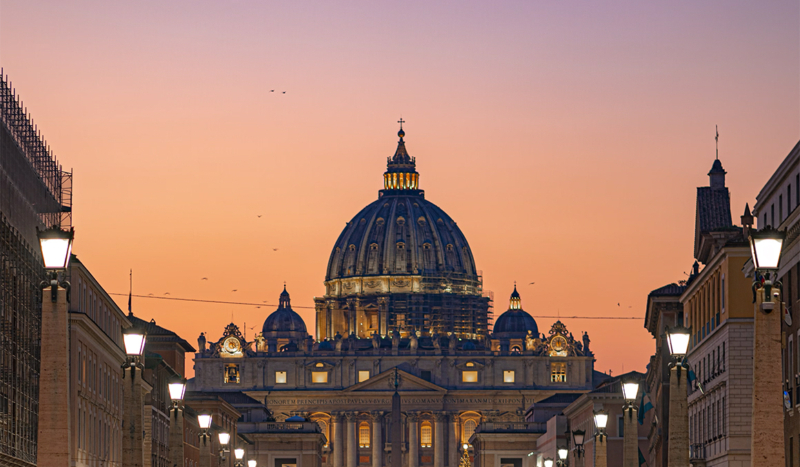
Alberico Bartoccini / unsplash
VATICAN CITY // Before his death, Pope Francis designated his prayer intention for the month of May to be working conditions, a press release from the Pope’s Worldwide Prayer Network shared May 5. Specifically, the intention is “that through work, each person might find fulfillment, families might be sustained in dignity, and that society might be humanized,” according to the release.
The Church just finished celebrating two feasts related to work: the feast of St. Joseph the Worker on May 1 and the Jubilee of Workers, a May 1 to 4 event that invited employed pilgrims to cross the Holy Door at St. Peter’s Basilica.
Since 2016, the Pope’s Worldwide Prayer Network has distributed short videos via YouTube that spotlight the pope’s intention for the month.
The video for May, produced with the help of the Chamber of Commerce of Rome and the Fondazione PRO Rete Mondiale di Preghiera del Papa, features messages from Pope Francis, Pope Benedict XVI, and St. Pope John Paul II about work:
Highlighting plights faced in the world of work today, the May 5 press release states that 402 million people globally “want to work but do not have a job,” according to a January report from the UN and the International Labour Organization. Further, the release states that 160 children worldwide are oppressed by child labor, an estimated 240 million workers are paid less than $3.65 daily, and “some 2 billion people lack workers’ rights and social protection.”
The video quotes Pope Francis’ words from a 2022 General Audience: “The evangelists Matthew and Mark refer to Joseph as a carpenter. Jesus practiced His father’s trade, which was a pretty hard job. From an economic point of view, it did not ensure great earnings.” The video notes that this fact about the work of Joseph and Jesus made Pope Francis “think of all the workers in the world.”
“Work,” Pope Francis says in the video, “anoints our dignity: What gives you dignity is not bringing bread home. What gives you dignity is earning your bread.”
In the May 5 release, Stefano Simontacchi, a board member and co-founder of the Fondazione, noted that if 10 children were asked what they wanted to be when they are adults, they would probably give 10 different answers.
“In fact, as in the parable of the talents, each of us has been given our own gifts, and work provides us with the opportunity of making them bear fruit, of developing our own personality,” Simontacchi continued.
Work doesn’t just facilitate economic independence; it’s an opportunity for people to contribute to society – and as Christians see it, to participate in the creative work of God, according to Simontacchi.
“Pope Francis uses a really beautiful expression to define all this. He says, ‘work anoints our dignity,’” Simontacchi commented. “It is this anointing of our dignity that truly makes the difference in our lives. Even more so, this epoch of great change, such as artificial intelligence, must move us to promote networks founded on solidarity as a form of social cohesion. Gratitude, respect and solidarity must be our compass.”
Pope Benedict XVI said in the video that people must not idolize work or become enslaved to it, nor think it provides the ultimate meaning of life.
Work “is of fundamental importance to the fulfilment of the human being and to the development of society,” he remarked. “Thus, it must always be organized and carried out with full respect for human dignity and must always serve the common good.”
During the Jubilee of Workers in 2000, Pope John Paul II urged the faithful to remember people suffering from unemployment, unjust wages, and a lack of resources.
“The Year of Jubilee calls for a rediscovery of the meaning and value of work,” he said. “It is also an invitation to address the economic and social imbalances in the world of work by re-establishing the right hierarchy of values, giving priority to the dignity of working men and women and to their freedom, responsibility, and participation.”
The intention for May is a part of the late Pope Francis’ publication of prayer intentions for 2025. In April, Pope Francis’ intention was that new technology “will respect the dignity of the person.”
